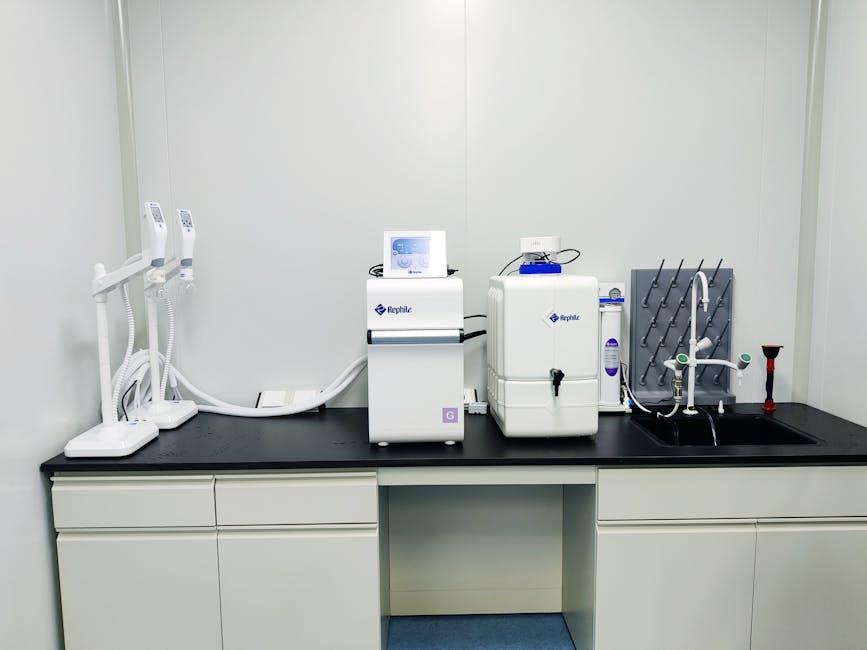In the fast-paced world of finance, where innovation and regulation dance a delicate tango, the process of Know Your Customer (KYC) compliance often feels like a cumbersome partner. As financial institutions navigate the intricate labyrinth of regulatory requirements, the need to streamline KYC processes has never been more pressing. This article delves into the art and science of refining these essential protocols, offering a masterclass in efficiency and precision. With an authoritative lens, we explore cutting-edge strategies and technologies that promise to transform KYC from a burdensome obligation into a seamless, integral component of financial operations. Prepare to embark on a journey where compliance meets innovation, ensuring that your institution not only meets regulatory demands but does so with unparalleled agility and foresight.
Optimizing Data Collection for Efficient KYC Compliance
In the fast-paced world of financial services, efficient data collection is the cornerstone of effective Know Your Customer (KYC) compliance. To achieve this, institutions must leverage advanced technologies and methodologies that not only streamline the process but also ensure accuracy and security. Implementing automated data entry systems can significantly reduce manual errors and speed up the verification process. By integrating AI-driven tools, financial institutions can automatically extract and validate customer information from various sources, minimizing the need for repetitive data entry and enhancing the overall customer experience.
Moreover, adopting a centralized data management system can play a crucial role in optimizing data collection. This system allows for seamless access and sharing of customer information across departments, ensuring that all teams are working with the most up-to-date data. Key strategies include:
- Utilizing cloud-based platforms for secure and scalable data storage.
- Implementing multi-layered authentication to protect sensitive customer information.
- Regularly updating data validation protocols to align with evolving regulatory requirements.
By focusing on these strategies, financial institutions can not only enhance their KYC compliance but also build trust with their customers through transparent and efficient data handling practices.

Leveraging Technology to Automate Verification Processes
In the rapidly evolving landscape of financial services, automation has emerged as a cornerstone for enhancing the efficiency and accuracy of Know Your Customer (KYC) compliance processes. By integrating cutting-edge technology, financial institutions can transform traditional verification methods into streamlined, digital workflows. This not only reduces the time and resources required but also minimizes human error and ensures compliance with ever-changing regulatory standards. Embracing technology such as artificial intelligence and machine learning enables institutions to automate data collection, analysis, and validation, ensuring that customer information is processed with unparalleled precision.
- AI-Powered Identity Verification: Leveraging AI algorithms to cross-reference customer data with global databases ensures accurate identity verification in real-time.
- Blockchain for Data Integrity: Utilizing blockchain technology guarantees the immutability and security of customer records, providing a transparent audit trail.
- Biometric Authentication: Implementing biometric solutions like facial recognition and fingerprint scanning enhances security while offering a seamless user experience.
- Robotic Process Automation (RPA): Deploying RPA to handle repetitive tasks such as document checks and data entry significantly reduces operational costs and processing times.
By adopting these technologies, financial institutions not only ensure compliance but also build trust with their customers, fostering a more secure and efficient financial ecosystem.

Enhancing Risk Assessment with Advanced Analytics
In the dynamic landscape of financial services, advanced analytics have become a cornerstone for revolutionizing risk assessment. By leveraging sophisticated algorithms and machine learning models, financial institutions can transform traditional Know Your Customer (KYC) processes into more efficient and insightful frameworks. This evolution not only enhances the precision of risk evaluations but also reduces the time and resources spent on compliance.
- Data Integration: Seamlessly combine data from various sources to create a holistic view of customer profiles.
- Predictive Modeling: Utilize predictive analytics to anticipate potential risks and take proactive measures.
- Real-time Monitoring: Implement continuous monitoring systems to detect anomalies and unusual patterns promptly.
- Automated Reporting: Generate comprehensive compliance reports automatically, ensuring accuracy and consistency.
By embedding these advanced techniques into the KYC process, financial institutions can not only enhance their risk assessment capabilities but also foster a culture of proactive compliance, safeguarding their operations and reputations in an increasingly regulated environment.

Cultivating a Culture of Continuous Compliance Improvement
In the ever-evolving landscape of financial regulations, establishing a dynamic compliance framework is crucial. Financial institutions must prioritize creating an environment where compliance is not just a requirement but a core value. This can be achieved by embedding a culture of continuous improvement within the organization. Encourage your teams to regularly assess and refine their Know Your Customer (KYC) processes by:
- Leveraging technology: Utilize advanced analytics and AI to streamline data collection and verification, ensuring faster and more accurate customer onboarding.
- Fostering collaboration: Encourage cross-departmental collaboration to share insights and best practices, ensuring that compliance strategies are aligned with business objectives.
- Providing ongoing training: Implement regular training sessions to keep staff updated on the latest regulatory changes and technological advancements.
- Encouraging feedback: Create channels for employees to provide feedback on existing processes, fostering a sense of ownership and accountability.
By nurturing a proactive compliance culture, financial institutions can not only meet regulatory requirements but also enhance their reputation and trustworthiness in the market.





